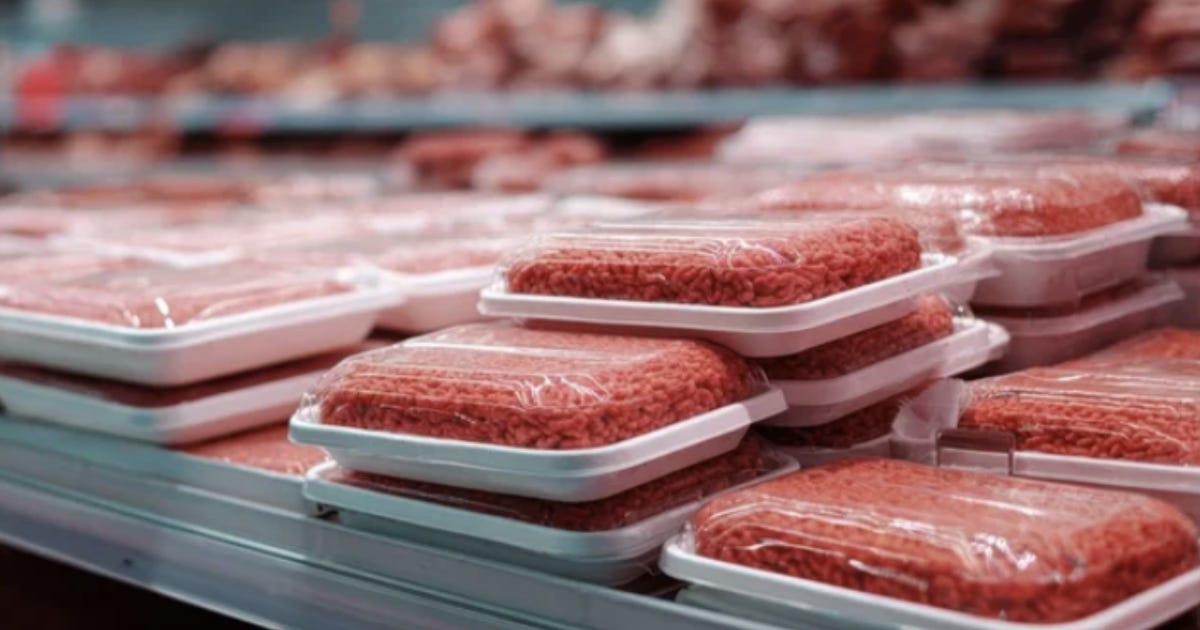OP-ED: Why won’t Ottawa investigate soaring beef prices?
"Canada doesn’t need political theatre; it needs better regulatory foresight, data transparency, and a serious look at how carbon pricing and infrastructure costs affect competitiveness."
Author: Sylvain Charlebois
Earlier this month, U.S. President Donald Trump announced that his administration was directing the Department of Justice to investigate major meat-packing companies for allegedly driving up beef prices through collusion and price manipulation. The move—unsurprisingly—generated headlines, applause from ranchers, and skepticism from economists. Still, it raises an uncomfortable question north of the border: why hasn’t Canada done the same?
Beef prices have soared on both sides of the 49th parallel. In the United States, retail prices are up between 11 and 14 per cent year-over-year, depending on the cut. In Canada, increases have been even steeper—roughly 14 to 16 per cent, with some premium cuts up more than 30 per cent since January. Nowhere is the contrast more visible than at the meat counter. The average U.S. price for 100 per cent ground beef reached US $6.32 per pound (about US $13.94 per kilogram) in September 2025, up roughly 11.5 per cent in a year. In Canada, consumers paid an average of CAD $14.85 per kilogram (roughly CAD $6.72 per pound), an increase closer to 13–14 per cent. Even after accounting for exchange rates, Canadians are paying slightly more for one of the most basic beef products—proof that our inflation problem is at least as severe as America’s, if not worse.
In Washington, invoking antitrust law to protect consumers plays well politically, especially when it comes wrapped in populist rhetoric about “foreign-owned corporations.” The four dominant U.S. packers—Cargill, Tyson, JBS, and National Beef—control over 80 per cent of the market. By ordering a DOJ probe, Trump signals to American ranchers that he’s on their side, defending domestic agriculture against multinational giants. Whether evidence of wrongdoing exists is secondary; the optics of action matter more than the outcome.
Ottawa, by contrast, avoids such theatrics. Canada’s Competition Bureau operates under a very different legal and cultural framework—one that prizes quiet compliance and long-term guidance over public confrontation. Even if beef prices rise in lockstep across the country, that alone isn’t grounds for an investigation. Under Canadian law, proving “price fixing” requires explicit communication between companies—emails, calls, or coordination—not just parallel pricing. High prices, no matter how painful, are not inherently illegal.
The reality is that Canada’s beef sector is highly concentrated—perhaps even more than America’s. Two foreign-owned companies, Cargill and JBS, dominate the federally inspected market. Their plants in High River, Brooks, and Guelph handle most of the nation’s cattle. Shutting down or even scrutinizing those operations would risk massive job losses, export delays, and political fallout in Alberta and Ontario. In a fragile minority Parliament, few ministers want to ignite that firestorm.
There’s also the issue of data and oversight. Unlike the USDA, which publishes detailed weekly carcass weights, kill numbers, and price spreads, Canada lacks a centralized agri-food data strategy. We simply don’t have the empirical tools to measure market power with precision. Our Agri-Food Analytics Lab at Dalhousie University and others have called for stronger federal-provincial coordination on market transparency, but progress has been glacial. Without reliable data, even a willing regulator would be investigating in the dark.
The contrast ultimately comes down to temperament. The United States acts; Canada deliberates. Washington’s reflex is enforcement, even if it means overstepping. Ottawa’s instinct is negotiation—quietly encouraging voluntary codes of conduct and dialogue among industry players. Canadians like to fix problems through consensus, not confrontation. That’s why the federal government still prefers to talk about supply-chain “resilience” rather than competitiveness.
Yet that cautious posture carries a cost. When prices rise sharply—as they have this year—Canadians naturally wonder whether the system works for them or against them. The Competition Bureau’s limited scope and chronic underfunding feed public skepticism. Meanwhile, the optics of a U.S. president “taking on the packers” make Canadian consumers feel as though their own government is asleep at the switch.
Still, we shouldn’t romanticize Trump’s move. His directive may play well in rural states, but investigations don’t automatically lower grocery bills. The underlying drivers—tight cattle supply, drought, high feed costs, and global demand—won’t vanish with subpoenas. What would help both countries are policies that make domestic processing more efficient and less vulnerable to shocks.
Canada doesn’t need political theatre; it needs better regulatory foresight, data transparency, and a serious look at how carbon pricing, labour shortages, and infrastructure costs affect competitiveness. Punishing companies without proof is easy. Building an environment where competition thrives is harder—but far more productive.
— Sylvain Charlebois is director of the Agri-Food Analytics Lab at Dalhousie University, co-host of The Food Professor Podcast and visiting scholar at McGill University.



Why would they want to investigate?
They have no desire to fix the problem they helped create.
All part of the WEF, UN, GLOBALIST, ENVIRONMENTALIST plan.
Well documented and since 2015 and continuing to this day with a party and PM who fully adheres to all of the aforementioned entities agendas also all well documented.
Find yourself a local cattle farmer and buy from him. If not already, lab grown meat will hit our shelves making us the test dummies one more time...